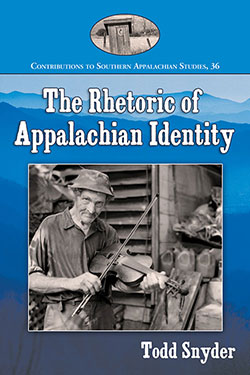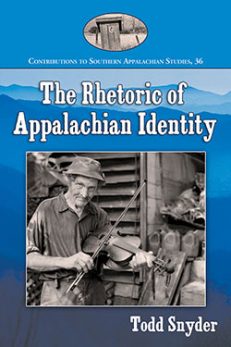The Rhetoric of Appalachian Identity
$29.95
In stock
About the Book
In this work the various ways that social, economic, and cultural factors influence the identities and educational aspirations of rural working-class Appalachian learners are explored. The objectives are to highlight the cultural obstacles that impact the intellectual development of such students and to address how these cultural roadblocks make transitioning into college difficult. Throughout the book, the author draws upon his personal experiences as a first-generation college student from a small coalmining town in rural West Virginia. Both scholarly and personal, the book blends critical theory, ethnographic research, and personal narrative to demonstrate how family work histories and community expectations both shape and limit the academic goals of potential Appalachian college students.
About the Author(s)
Bibliographic Details
Todd Snyder
Format: softcover (6 x 9)
Pages: 228
Bibliographic Info: notes, bibliography, index
Copyright Date: 2014
pISBN: 978-0-7864-7802-6
eISBN: 978-1-4766-1623-0
Imprint: McFarland
Series: Contributions to Southern Appalachian Studies
Table of Contents
Acknowledgments xi
Prelude: The Hillbilly Speaks of Rhetoric 1
Introduction: The Ethical Appeal to Authority 7
Part I. Appalachia and the American Imagination: Critical Theory
1. The Hillbilly 15
2. Hillbilly Learnin’ 34
Part II. Material Reality and Appalachian Identity: Personal Experience
3. Work 55
4. Leaving Holme 74
Part III. Appalachia and the Academy: Ethnographic Research
5. Family Rhetoric 95
6. College Rhetoric 117
Part IV. Critical Consciousness and the College Diploma: Critical Pedagogy
7. Critical Educators 145
8. Critical Pedagogy 172
Postlude: The College-Educated Hillbilly 194
Chapter Notes 203
References 205
Index 211
Book Reviews & Awards
“Snyder’s book should attract multiple audiences. Appalachian Studies scholars will want to skim the familiar Appalachian back-story in Chapter 1 but may linger over the first-person accounts and critical and rhetorical theory. Rhetoric and composition scholars, valuing critical pedagogy and ethnographic research, may use the book in graduate classes or to inform their own research”—Appalachian Journal.





